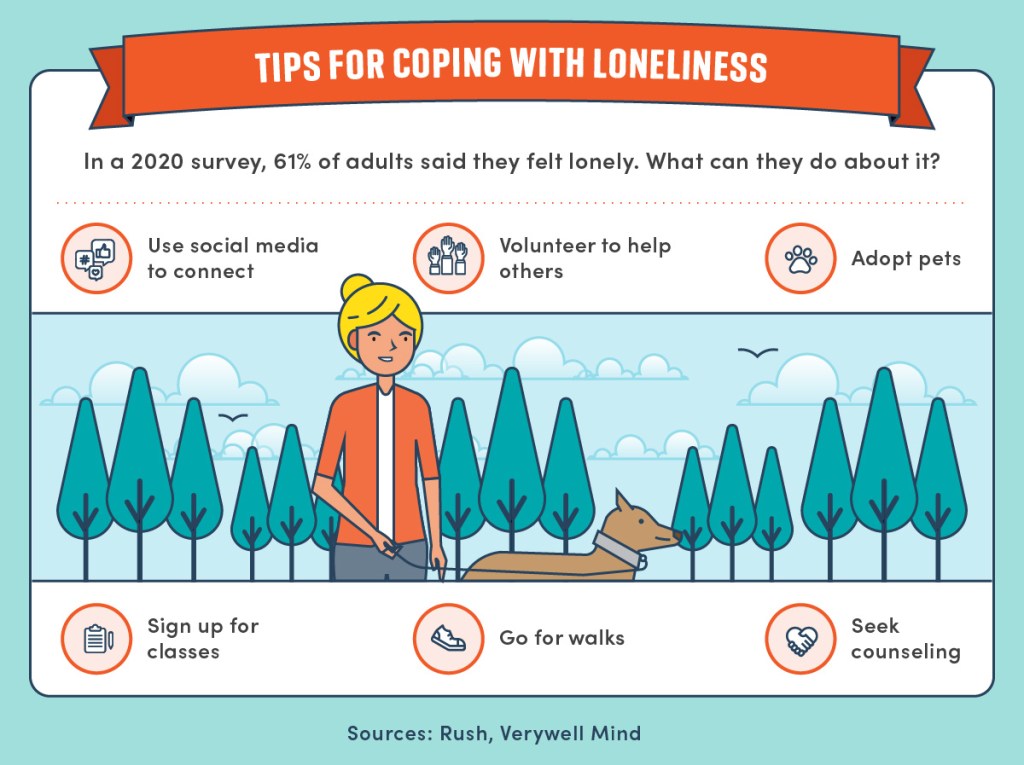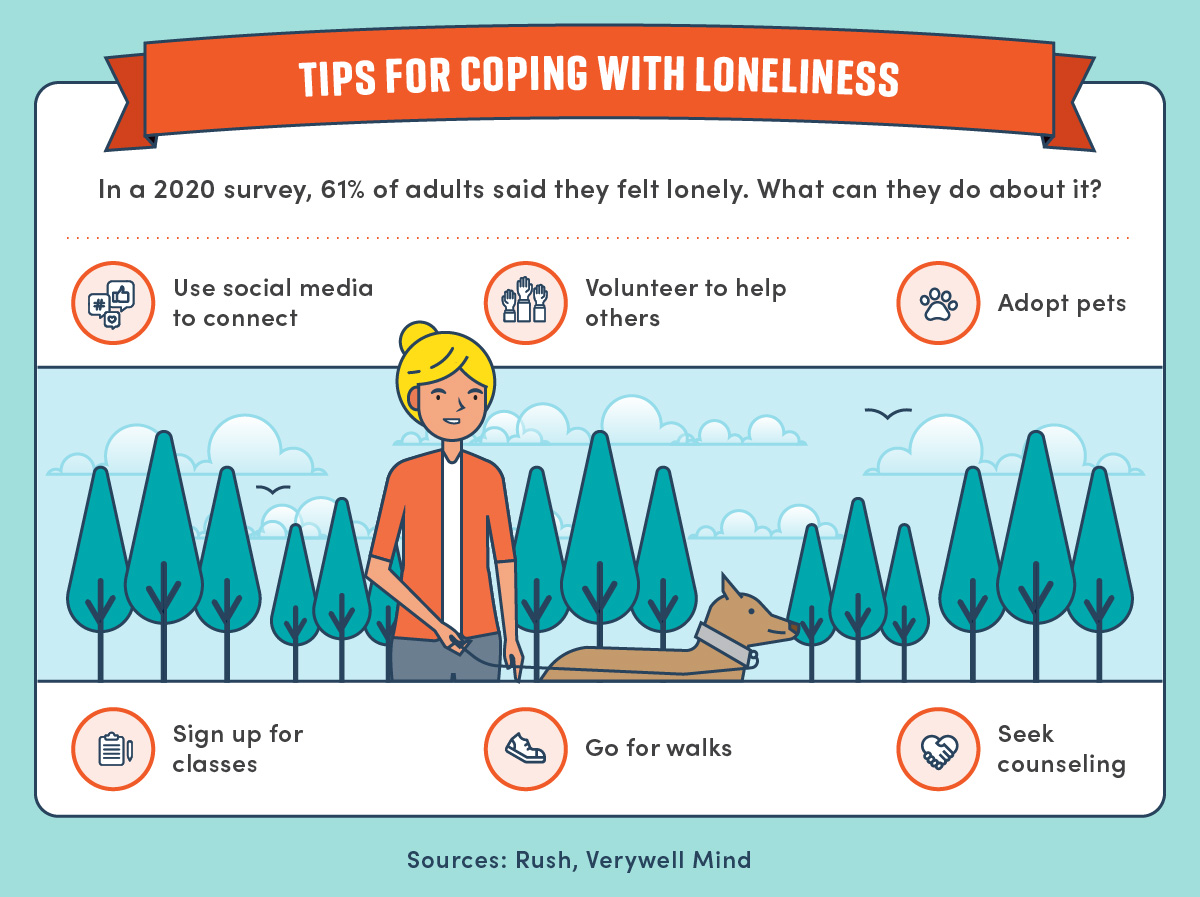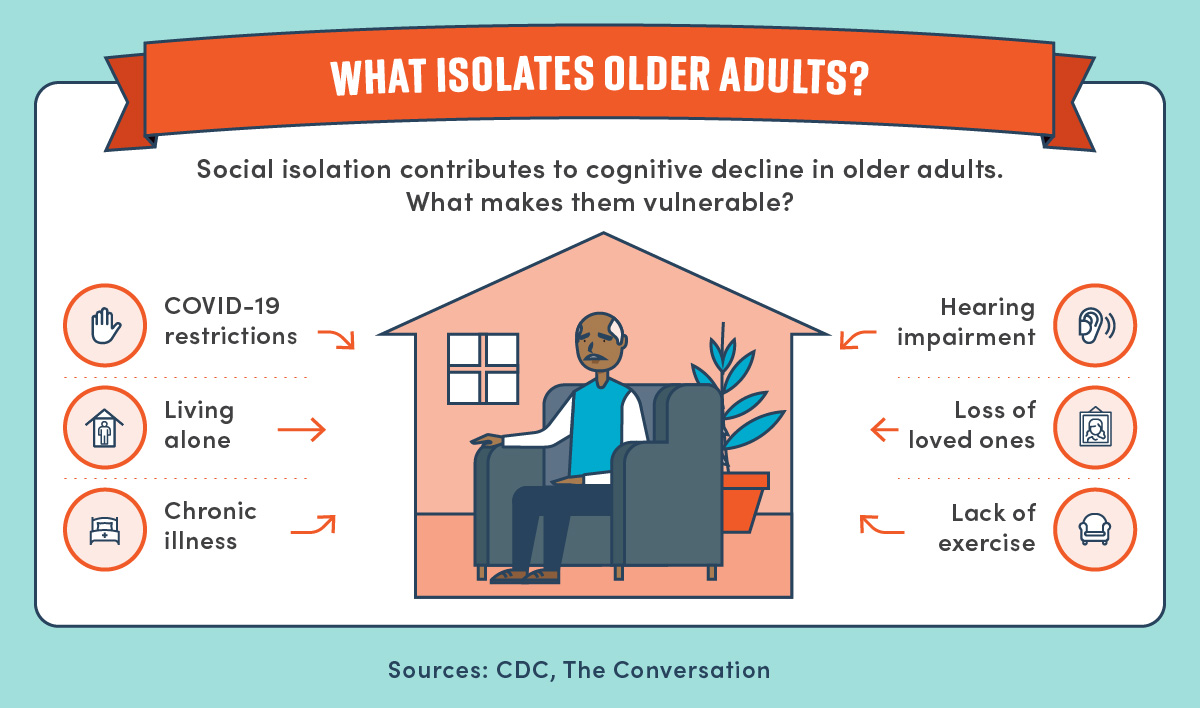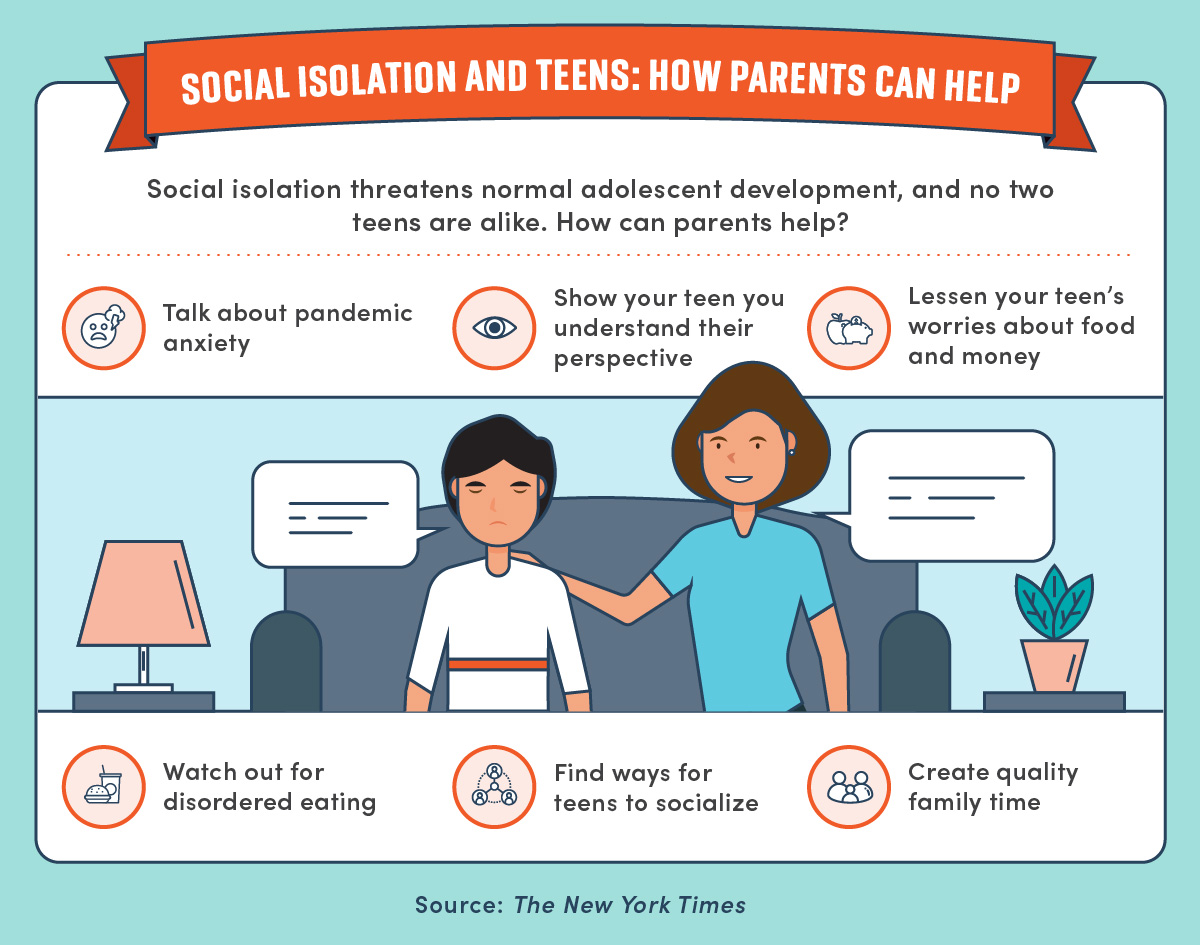What Is the Impact of Social Isolation on Cognitive Health?

Tables of Contents
Together, we’re sharper, livelier, and more engaged. If we’re alone too long, we can start to decline physically and emotionally. That downswing, in turn, takes a toll on healthy brain functioning — a truth the global pandemic’s safety measures, such as physical distancing, drive home with full force.
In a recent study reported in Scientific Reports, older adults whose social activities were turned upside down by the pandemic took a significant hit to their ability to recall, focus, and multitask. Older adults aren’t the only ones whose cognitive health reels under social isolation — we’re all at risk, at any age. Fortunately, whatever challenges we may face, we can protect our cognitive health by taking steps to bridge the gap between ourselves and others.
Importance of Cognitive Health
Cognitive health means healthy brain functioning, and without it, we stand to lose a lot: the ability to come and go as we please, to express ourselves fluently, to stay alert and involved. According to the American Heart Association and the American Stroke Association, a healthy brain is a predictor of our future quality of life, including our functional independence and risk of institutionalization.
Increasingly, experts find that staying connected to others is key to staying healthy. Knowing what healthy brain functioning looks like, just as we recognize a healthy weight or heart rate, can help us catch danger signs and take steps to improve our own and others’ cognitive health.
What Is Cognitive Health?
Cognitive health is brain health, but what is a healthy brain, exactly? Although we don’t have a universally agreed-upon definition, the National Institute on Aging, an agency of the National Institutes of Health, describes brain health as “how well a person’s brain functions across several areas.” These include:
- Thinking
- Learning
- Remembering
- Physical coordination
- Interpreting emotion
- Responding to emotion
Regarding a healthy brain’s effect on well-being, people typically describe cognitive health as the condition of having a positive mental outlook, being alert, having a good memory, and being socially involved.
What Are the Consequences of Impaired Cognitive Health?
Whether compromised brain health is triggered by disease, drugs, physical trauma, or the effects of social isolation, its consequences can be serious, even life changing. Common signs and symptoms include:
- Confusion
- Poor motor coordination
- Memory loss
- Impaired judgment, reasoning, and problem-solving
- Difficulty paying attention
- Difficulty planning and organizing
- Impairment of sensations of touch (pressure, pain, temperature)
Over time, if left untreated, the consequences of poor cognitive health can worsen. Long-term negative effects of poor brain health can include:
- Unusual mannerisms
- Abnormal posture
- Forgetting names and faces of significant people
- Lack of emotional stability
- Lack of control over one’s actions

In a 2020 survey, 61% of adults said they felt lonely. Some suggestions for combating loneliness include using social media to connect, volunteering to help others, adopting pets, signing up for classes, going for walks, and seeking counseling.
Maintaining Cognitive Health Supports Well-Being
In large measure, keeping our brains healthy means keeping our spirits fed. That’s because cognitive health makes possible the prospect of a long, enjoyable, and engaged life.
What’s fulfilling in life means different things to different people. It could include, among any number of positive and life-affirming things:
- Maintaining independence, such as driving a car or navigating public transportation
- Keeping physically active and enjoying a sport or outings in nature
- Doing well in school, having a successful career, or completing creative projects
- Being a stable and caring resource for family, friends, and community
- Living out one’s purpose in life
Simply put, cognitive health is about understanding, appreciating, and interacting with the world around us and getting the most out of life at any age.
Researchers increasingly find that loneliness and social isolation’s effects on our cognitive health and overall well-being can be considerable at any age or stage in life. To combat social isolation’s negative impact, we must first understand its significance.
The terms “loneliness” and “social isolation” go hand in hand. Social isolation can bring on loneliness. Some people, however, voluntarily choose to spend much of their time alone, yet don’t feel lonely at all. What’s the difference between loneliness and social isolation?
According to the Centers for Disease Control and Prevention (CDC), “Loneliness is the feeling of being alone, regardless of the amount of social contact. Social isolation is a lack of social connections. Social isolation can lead to loneliness in some people, while others can feel lonely without being socially isolated.”
Many of us have been lonely. Anyone who has moved to a place where they don’t know anyone well, or who has suffered the loss of a loved one has doubtless experienced loneliness. But when loneliness lingers and becomes chronic, the fallout can affect all areas of life. Chronic loneliness is characterized by:
- Alienation, or inability to connect deeply with others
- Having acquaintances but no close friends
- Self-doubt
- Poor self-esteem
- Burnout when trying to socialize
It’s important to realize that people experiencing chronic loneliness aren’t necessarily socially isolated. The chronically lonely individual feels set apart from others no matter what their surroundings are or who is with them.
Social isolation, on the other hand, is often situation specific, involuntary, and imposed from the outside, as with the physical distancing safety measures set in place by governments in response to the COVID-19 pandemic. Prolonged social isolation, studies have shown, can have a profound effect on well-being because it can trigger symptoms of chronic loneliness.
Feeling lonely for a long time, no matter what the cause, affects physical, emotional, and cognitive health. If left unaddressed, chronic loneliness brought on by social isolation puts people at risk for:
- Serious medical problems
- Shorter life spans
- Increased risk for dementia or Alzheimer’s disease
- Reduced cognitive skills
- Depression
As Hilary Brueck of Business Insider puts it, “Going without human contact for too long can literally break your heart.”
Major Impacts of Social Isolation on Cognitive Health
Chronic loneliness brought on by social isolation has tangible, often severe consequences; the effects of social isolation on cognitive health include the following.
Increased Cortisol Production
According to the CDC, a major effect of social isolation and its resulting loneliness is increased production of cortisol (a hormone the body creates when under stress). High cortisol levels can lead to brain-health issues, such as an impaired ability to concentrate.
Reduced Cognitive Skills
In addition to hiking cortisol levels, long-term loneliness and social isolation can affect brain health by reducing cognitive skills, such as the ability to make decisions or solve problems.
Older adults are likely to face age-related brain changes as they mature: dementia and stroke come with the territory for many elderly people. Social isolation, especially the extreme sort brought about by the pandemic, can make age-related brain issues worse, and older adults without severe cognitive issues are nevertheless at risk for cognitive health decline when they experience social isolation.
Negative Effects of Social Isolation on Older Adults
Older adults are particularly vulnerable to social isolation. A pernicious aspect of the pandemic has been the separation of older adults from their family, friends, and community at a time when we all crave connection and comfort.
Because older adults are at higher risk for severe or even fatal illness if they contract COVID-19, they are subject to stricter safety measures, such as sheltering in place, than are other age groups. As a result, the COVID-19 pandemic has worsened the negative effects of social isolation on the elderly, putting many older adults’ social lives on hold and leaving them at greater risk for chronic loneliness.
Grandparents miss hugging their grandkids, churchgoers miss their choirs. Restaurants where older adults used to meet up are closed. The elderly in assisted living or hospitals are expected to forgo the comfort of visitors, even from elderly spouses — who then suffer as well.
The danger the COVID-19 virus poses to the elderly is real. Fear of contracting the virus prompts many older adults to self-isolate even when local, state, or national restrictions are relaxed. The need for vigilance can put greater strain on people in this age group in an already stressful situation.
Certainly, the heightened effects of social isolation on the elderly existed before the stressors of the pandemic. In general, according to the CDC, older adults are at a naturally greater risk for loneliness and social isolation than other age groups because they are more likely to experience specific life challenges:
- Living alone
- Loss of family or friends
- Chronic illness
- Hearing loss
- Limited mobility
- Limited financial resources
The heightened risks of social isolation for the elderly include:
- Cognitive decline
- Dementia
- Diminished ability to perform daily tasks

Social isolation contributes to cognitive decline in older adults. Factors that make them vulnerable to social isolation include COVID-19 restrictions, living alone, chronic illness, hearing impairment, loss of loved ones, and lack of exercise.
Ways to Combat Negative Effects of Social Isolation on Older Adults
Lifestyle changes can often alleviate the negative effects of social isolation on older adults, according to the National Institute on Aging.
Some of the ways that older adults can take charge of their lifestyles include:
- Taking care of their physical health
- Managing high blood pressure
- Being physically active
- Stimulating their minds
- Staying socially active
- Managing stress
Resources: Help with Combating Social Isolation and Cognitive Decline in Older Adults
Older adults and those who care for them can consider these resources for combating social isolation and cognitive decline in the elderly.
- Eldercare Locator: This public service of the Administration on Aging, an agency of the U.S. Administration for Community Living, connects older adults with local support resources, including resources for dealing with social isolation and loneliness.
- AARP Local: This free search tool sponsored by the American Association of Retired Persons (AARP) helps older adults find local events, news, volunteer opportunities, and local resources.
- Friendship Line: The Institute on Aging’s 24-hour toll-free hotline (800-971-0016) is an accredited crisis line for people aged 60 and older that supports “individuals who find connecting within the community challenging.”
- National Council on Aging: This website offers older adults tools and resources for managing their money, maintaining their health, and improving their quality of life.
A young child might find learning a foreign language easier than tying their shoes. Children’s brains are works in progress; they’re still developing, and this can influence the effects of social isolation on a child.
Infants come into the world poised to learn, but how the brain grows depends in large part on the child’s social interactions and experiences. Not surprisingly, then, social isolation can have a negative impact on a child’s cognitive development.
Effects of Social Isolation on a Child’s Brain
What are the effects of social isolation on a child’s brain? In a 2020 study, researchers speculated that social isolation in childhood damages a part of the brain that regulates social behavior in adulthood.
Specifically, researchers from Mount Sinai’s Icahn School of Medicine observed the effects of social isolation in male mice. After the mice were isolated for two weeks, their brains’ medial prefrontal cortex neurons failed to activate during social interactions when they grew to adulthood.
Fortunately, the researchers’ attempts to reverse the damage to the mice’s brains that occurred from isolating them was successful. This gives rise to the hope that any negative effect of social isolation on children’s brains can be treated at some time in the near future.
Although the link between social isolation and a child’s brain development is still under investigation, many argue that socially isolated children become lonesome, unsociable adults. Clinical psychologist Jennifer Wojciechowski explains how this may be true.
Play and socialization are “the work of childhood,” according to Wojciechowski. Children learn social skills while playing and interacting with peers, such as by:
- Taking turns
- Learning when and how to join others
- Regulating and expressing emotion
- Tolerating frustration
How to Help Combat the Effects of Social Isolation on a Child
Parents and caregivers who foster childhood socialization can help children thrive, even during a global pandemic. Families can support a child’s socialization at home, Wojciechowski says. If, however, they choose to send a child back to preschool or elementary school where COVID-19 safety restrictions like masks and physical distancing are in place, children can adapt to that, too.
The key takeaway? Offer children opportunities for socialization early and often.
Resources: Ways to Combat Negative Effects of Social Isolation on Children
Families and caregivers can consider these resources for combating the negative impacts of social isolation on children.
- Zero to Three, Tips for Families: Coronavirus: This website offers resources for families with young children who are isolated, including activities for young children experiencing social distancing.
- UNICEF, “Psychosocial Support for Children During COVID-19”: A manual for parents and caregivers, this international resource aims to serve as a support tool for children socially and emotionally impacted by the pandemic.
- National Parent Helpline: By calling 1-855-4A PARENT (1-855-427-2736) stressed parents can speak to a trained advocate who offers emotional support and advice.
- “Helping Your Child with Socialization”: This website article from the Child Development Institute offers guidelines that help parents strategize a plan to help their children with socialization issues.
The human brain reaches its maximum size in early adolescence (the period after puberty when children begin developing physically into adults). But even though the brain has stopped increasing in size, it hasn’t stopped developing or maturing.
The brain’s prefrontal cortex doesn’t completely mature until a person’s mid- to late 20s. In part, the prefrontal cortex is responsible for the following functions:
- Planning
- Prioritizing
- Impulse control
Given that brains are late bloomers, teens’ brains affected by social isolation can put those teens at risk. Even teens whose brains are developing according to schedule may engage in risky behaviors without considering the outcomes of their actions, possibly endangering themselves or others.
Risky behaviors in teens that could be caused by an immature prefrontal cortex include those involving poor decision-making, such as:
- Unprotected sex
- Sexting
- Binge drinking
- Reckless driving
- Trespassing
- Vandalism
- Truancy
When teens have experienced social isolation at a critical time in their brain’s development, their behavior is likely to suffer all the more.
Further, when an adolescent’s brain is affected by social isolation and its attendant stress, adult development can be impacted.
Social Isolation in Adolescence Can Affect Adult Life
A recent study found that a lack of social interaction during adolescence can change a teen’s brain structure and derail their normal brain development and decision-making skills.
According to Shannon L. Gourley, a neuroscientist at Emory University, young people have two periods of rapid growth in synaptic connections between neurons. One period is early childhood; the other is adolescence.
“During adolescence, we have an overabundance of these contacts [between neurons],” Gourley says. “Then many of them are pruned away. Important contacts are strengthened, and the excess ones are eliminated. That helps to optimize goal-directed decision-making behavior and inhibit impulsive behavior in adulthood.”
In the scientific study Gourley participated in, the brains of mice who had been isolated from other mice as adolescents showed lingering, unneeded neural connections that mice who hadn’t been isolated didn’t exhibit. The socially isolated mice with the extra neural connections were more likely to:
- Engage in habit-based behaviors, including addictions
- Exhibit biased decision-making
- Show social anxiety when reintroduced to other mice
Although more investigation is needed, Gourley and the other researchers draw a parallel between their study and teens who have experienced social isolation, suggesting that these teens are at risk of having poor decision-making skills and other cognitive issues as adults.

Social isolation threatens normal adolescent development, and no two teens are alike. Parents can help by talking about pandemic anxiety, letting teens know they understand their perspective, lessening their teen’s worries about food and money, watching out for disordered eating, finding ways for teens to socialize, and creating quality family time.
The Effects of Social Isolation in Adolescents During the Pandemic
Teens have been hit especially hard by the social isolation brought about by the COVID-19 pandemic. According to clinical psychologist Lisa Damour, teen brain development depends on:
- Gradually increasing independence
- Spending time with peers
Unfortunately, the pandemic’s safety measures have put the brakes on exactly these sorts of activities. Damour says, “Pandemic conditions are at cross currents with normal adolescent development.”
How to Help Combat the Effects of Social Isolation on Adolescents
In general, Damour says, parents can help their teens who experience social isolation simply by showing willingness to see their teens’ concerns from the teens’ perspective. And because isolated adolescents typically aren’t likely to be around many adult role models outside the home, they benefit from having parents who work on strengthening their bond with their teens and acting as good role models.
Resources: Ways to Combat Negative Effects of Social Isolation on Adolescents
Teens and parents or guardians of teens can consider these resources for dealing with the effects of social isolation on adolescents.
- Teen Line: This nonprofit organization provides emotional support to youth through peer-based education, using a national hotline, community outreach, and online support. Call 800-852-8336 or text TEEN to 839863.
- Responsibility.org: This website aims to help parents with teens, with a focus on preventing underage drinking. The organization offers a video series, “Parenting Responsibly,” with practical advice on parenting adolescents throughout their teen years.
- Michigan Health: The article “8 Ways to Help Teens Cope with Social Distancing Blues” offers tips for helping teens navigate the disappointments and challenges of the pandemic, including exploring alternative celebrations, sticking to a school schedule, and embracing technology.
- YouthLine: An Oregon-based hotline that describes itself as “teens helping teens,” YouthLine is a free, 24-hour crisis support and helpline for youth. Call 877-968-8491 or text teen2teen to 839863.
Connect with Others to Support Cognitive Health
It’s vital to our well-being, now and in the future, to understand the benefits of cognitive health, as well as the damaging effects of social isolation on our brains and lives. The negative impact of social isolation can be counteracted with persistence and with courage.
The most important and life-affirming proactive measure people can take to care for themselves and others, especially in challenging times, is to reach out to one another.
Infographic Sources
The New York Times, “The Hardest Fight to Have with Your Teen”

